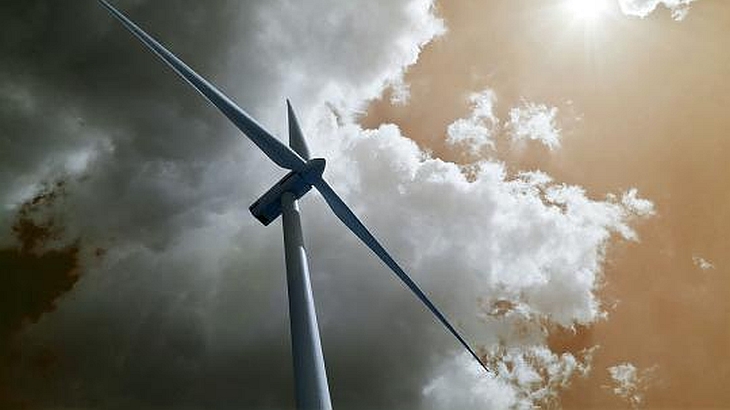autor: Ștefan Botezatu
Recent proposals from Romania’s energy regulatory authority and projected legislative changes could have a negative impact on investments in the country’s renewable energy sources (“RES”) sector.
The current legislation (the Renewable Energy Law) was enacted to support RES production in response to the European Union’s framework directive on renewable energy (Directive 2009/28/EC), which mandates that, by 2020, 24 per cent of Romania’s final consumption of electricity originate from RES. In addition, the Romanian Energy Strategy for 2007-2020 prescribes that the share of electricity generated from RES in the country’s aggregate final consumption should be at least 35 per cent by 2015 and 38 per cent by 2020.
The Renewable Energy Law was passed in 2008, but the incentive scheme for RES production has only been applicable since mid-2011. Under the scheme, producers of electricity from RES are allocated a set number of green certificates (“GC”) for each MWh of electricity generated and fed into the power grid/delivered to consumers, while energy suppliers are obliged to purchase a mandatory quota of GCs. The support period depends on the type of RES (wind, solar, hydro, biomass) and installation (new or refurbished). It can amount to up to 15 years for electricity generated in new installations.
ANRE’s proposal
To benefit from the GC support scheme, producers of electricity from RES must be accredited by the Romanian energy regulatory authority (“ANRE”). ANRE is tasked with monitoring their activities and preparing annual reports. If monitoring reveals overcompensation (i.e. significantly higher rates of return than the reference level), ANRE may propose a cut in the number of GCs for new beneficiaries/new entrants.
On 29 March 2013, ANRE published the 2012 Romanian GCs Market Monitoring Report, which concludes that overcompensation occurred in 2012 in respect of wind, solar and hydro energy. As a result, the authority has proposed to cut the number of GCs granted to new producers of wind, solar and hydro energy. ANRE’s proposals have yet to be approved by the Romanian government.
Changes to the Renewable Energy Law
In parallel to ANRE’s monitoring, the government has been working on a series of draft ordinances to amend the Renewable Energy Law, prompted by several factors. The number of GCs/MWh is viewed as excessive, especially with respect to solar energy, as real investment costs are significantly lower than the estimated costs on which the incentive scheme was conceived, leading to systematic overcompensation. The costs generated by the GC support scheme have increased significantly, generating an excessive burden on households and impacting negatively large industrial consumers. Finally, RES capacities largely exceed the current capacity of the national power transmission/distribution grid.
Changes under consideration include:
– Temporary and partial suspension of a number of GCs for wind, hydro and photovoltaic plants
– Corrections to the computation mechanism of the quarterly mandatory purchase quotas for GCs
– Amendment of the guarantee fund mechanism applicable to suppliers in breach of their quarterly mandatory quotas
– Repeal of the exemption case and reduction threshold provided in relation to the adjustment of the number of GCs in the event that the GC support scheme is applied cumulatively with other state aid
– Partial exemption of large consumers from the GC support scheme
– Maximum annual threshold and additional financial guarantees for RES capacities requesting access to the grid
– Change to ANRE’s monitoring calendar (i.e. monitoring reports should be performed twice a year instead of annually) and repeal of the suspensive clause, which ensures that any reduction of the number of GCs shall apply not earlier than 2015 (2014, in the case of solar projects)
– Possibility for RES producers to enter into bilateral agreements (only for producers of up to 5MW installed capacity) and regulated agreements for trading electricity generated from RES
Under the current draft, the scope of a number of measures will have to be further specified by means of secondary legislation enacted by ANRE, such as the GCs’ postponement and the recovery mechanisms as well as the functioning of the GCs guarantee fund. It would be preferable to include these specifics in the text of the ordinance rather than leave them to ANRE, as it remains unclear when or how the authority would implement this secondary legislation.
The days of Romania’s favourable investment climate in RES may be counted.
In addition, the limitation on the maximum annual thresholds for allowed new RES capacities introduces serious uncertainty as to the possibility to benefit from the GC support scheme, despite the investment made up to the accreditation phase of a RES project. This could possibly be construed as an anticompetitive and discriminatory measure, and a violation of the fair and equitable standard of protection of an investment.
The 30-day public debate period ended this month. There may be further changes before the final text is submitted to the European Commission for approval. But there is no doubt that when adopted, these measures will have a negative impact on the renewable energy sector. The days of Romania’s favourable investment climate in RES may be counted.
Stefan Botezatu is a partner and the head of the firm’s dispute resolution practice as well as head of the energy practice in Kinstellar’s Bucharest office. For more details check his energynomics.ro profile.
